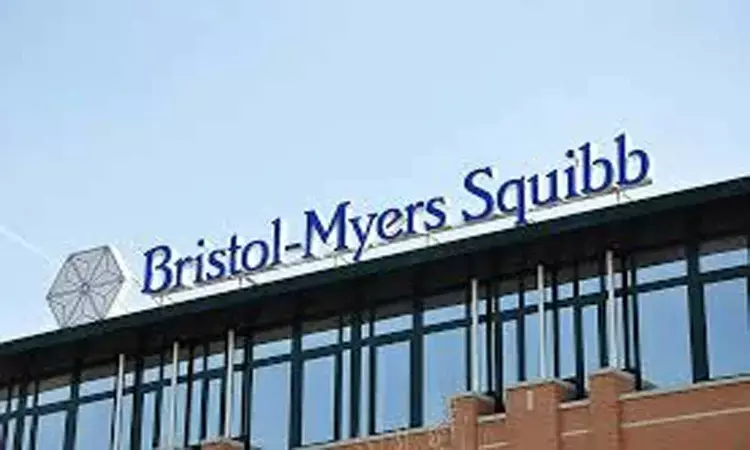- Home
- Medical news & Guidelines
- Anesthesiology
- Cardiology and CTVS
- Critical Care
- Dentistry
- Dermatology
- Diabetes and Endocrinology
- ENT
- Gastroenterology
- Medicine
- Nephrology
- Neurology
- Obstretics-Gynaecology
- Oncology
- Ophthalmology
- Orthopaedics
- Pediatrics-Neonatology
- Psychiatry
- Pulmonology
- Radiology
- Surgery
- Urology
- Laboratory Medicine
- Diet
- Nursing
- Paramedical
- Physiotherapy
- Health news
- Fact Check
- Bone Health Fact Check
- Brain Health Fact Check
- Cancer Related Fact Check
- Child Care Fact Check
- Dental and oral health fact check
- Diabetes and metabolic health fact check
- Diet and Nutrition Fact Check
- Eye and ENT Care Fact Check
- Fitness fact check
- Gut health fact check
- Heart health fact check
- Kidney health fact check
- Medical education fact check
- Men's health fact check
- Respiratory fact check
- Skin and hair care fact check
- Vaccine and Immunization fact check
- Women's health fact check
- AYUSH
- State News
- Andaman and Nicobar Islands
- Andhra Pradesh
- Arunachal Pradesh
- Assam
- Bihar
- Chandigarh
- Chattisgarh
- Dadra and Nagar Haveli
- Daman and Diu
- Delhi
- Goa
- Gujarat
- Haryana
- Himachal Pradesh
- Jammu & Kashmir
- Jharkhand
- Karnataka
- Kerala
- Ladakh
- Lakshadweep
- Madhya Pradesh
- Maharashtra
- Manipur
- Meghalaya
- Mizoram
- Nagaland
- Odisha
- Puducherry
- Punjab
- Rajasthan
- Sikkim
- Tamil Nadu
- Telangana
- Tripura
- Uttar Pradesh
- Uttrakhand
- West Bengal
- Medical Education
- Industry
Bristol Myers Squibb Nivolumab marketing approval to be revoked for hepatocellular carcinoma: CDSCO panel

New Delhi: In a major setback for Bristol Myers Squibb, the Subject Expert Committee (SEC) of the Central Drugs Standard Control Organisation (CDSCO) has opined that the marketing approval of Bristol Myers Squibb anticancer drug Nivolumab should be withdrawn for the indication of hepatocellular carcinoma till safety and efficacy data are available in the Indian population.
This came after the firm presented their proposal for voluntary withdrawal of the drug in hepatocellular carcinoma in the USA.
In addition, the drug-maker also informed the expert panel that a confirmatory Phase III clinical trial related to the use of Nivolumab as monotherpay in the hepatocellular indication is ongoing overseas.
Nivolumab is a human IgG4 monoclonal antibody that is a PD-1 blocking antibody used to treat melanoma, non small-cell lung cancer, renal cell cancer, head and neck cancer, and Hodgkin lymphoma.
The ligands PD-L1 and PD-L2 bind to the PD-1 receptor on T-cells, inhibiting the action of these cells. Tumor cells express PD-L1 and PD-L2. Nivolumab binds to PD-1, preventing PD-L1 and PD-L2 from inhibiting the action of T-cells, restoring a patient's tumor-specific T-cell response.
It is often given when cancer has spread to other parts of the body (metastatic), cannot be surgically removed, or has come back after prior treatment. It is given as an infusion into a vein slowly, and the infusion can take 30 to 90 minutes to complete. Nivolumab is usually given once every 2 to 4 weeks. It is on the World Health Organization's List of Essential Medicines.
It was developed by Bristol Myers Squibb. Nivolumab was granted FDA approval on December 22nd, 2014.
At the recent SEC meeting for oncology and haematology held on February 24,2022, the expert panel extensively reviewed the proposal presented by the pharma major Bristol Myers Squibb regarding the voluntary withdrawal of the drug for hepatocellular carcinoma in the USA.
The committee noted that the firm was granted accelerated approval by the US FDA subject to the condition that continued approval for the indication may be contingent upon verification and description of clinical benefit in the confirmatory trials.
Furthermore, the committee noted that the drug did not meet the primary endpoints in the Phase III confirmatory trial.
After detailed deliberation, the committee recommended that the firm should submit safety and efficacy data from a Phase III confirmatory clinical trial meeting the endpoint of the study for continued marketing of the drug in the indication of hepatocellular carcinoma.
Furthermore, the committee recommended that the approval for marketing for the indication in the country for hepatocellular carcinoma should be withdrawn till safety and efficacy data are available in the Indian population.
Doctor of Pharmacy
Dr. Divya Colin, a Doctor of Pharmacy Graduate with extensive experience in clinical and hospital settings and confidently equipped with diagnostic and therapeutic skills. She also has spread out exposure to Oncology Departments in Mysore Medical College and Research Institute as Oncology Pharmacist. Currently she is building a career in clinical research and clinical data management. She has been a part of Medical Dialogue since January 2022.


